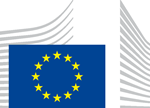CISUR – Enhancing Judicial Cooperation on the Implementation of the Succession Regulation in Croatia and Slovenia
The project CISUR deals with the implementation of Regulation (EU) No 650/2012 of the European Parliament and of the Council of 4 July 2012 on jurisdiction, applicable law, the recognition and enforcement of decisions and the acceptance and enforcement of authentic instruments in matters of succession, and on the creation of a European Certificate of Succession.
Freedom of movement within the European Union has prompted a higher number of migrations within Member States for reasons of employment or life after retirement, which often results in situations where EU citizens become property owners in different Member States. Another reason for migration is marriages between EU citizens who are nationals of different Member States, or their presence in a Member State other than the State of their citizenship. In the case of the death of these persons, numerous succession issues with cross-border elements arise. Since the European population is becoming older, the problem is even more emphasised. It is estimated that approximately 4.5 million people die each year in the EU, which includes assets in a total amount of EUR 646 billion a year. It is also reasonable to assume that approximately 9-10% of the total number of successions (about 450,000 cases) includes an international dimension, which corresponds to assets to the total value of EUR 123.3 billion per year.
Therefore, Regulation (EU) No 650/2012 on jurisdiction, applicable law, recognition and enforcement of decisions and acceptance and enforcement of authentic instruments in matters of succession and on the creation of a European Certificate of Succession was adopted on 4 July 2012 (SL EU, L 201, 27. 7. 2012.).
- To assess the extent to which Croatia and Slovenia have successfully implemented the Regulation and the national implementing legislation (through secondary data analysis and empirical research), as well as the problems encountered by the competent authorities when applying the Regulation, and to draw up recommendations regarding the implementation of the Regulation;
- To increase knowledge relevant for the implementation of the Regulation (through the development of a Guide for the implementation of the Regulation for legal practitioners, and training on the implementation of the Regulation for legal practitioners);
- To inform citizens about the Regulation, so that they can regulate in advance the issues they have related to succession, by publishing online information for the general public;
- To disseminate the Recommendations and the Guide among relevant institutions and the professional public;
- To contribute to the development of collaboration and mutual trust among national authorities and legal practitioners that apply the Regulation in Croatia and Slovenia (through the Mutual Learning Meeting for stakeholders applying the Regulation and through the final event of the Project/International Colloquium).
More information about CISUR project
Results
- Final report on the conducted research on the implementation of the succession regulation in Croatia and Slovenia (Slađana Aras Kramar, Marko Turk, Katarina Vučko, October 2019)
- Recommendations on the application of the succession regulation (Croatian Law Centre, October 2019)
- SUCCESSION WITH CROSS-BORDER IMPLICATIONS, Information for citizens of EU Member States in the cases of cross-border successions (Slađana Aras Kramar, Katarina Vučko, March 2020)
- International Colloquium ‘Enhancing Judicial Cooperation on the Implementation of the Succession Regulation (EU) 650/2012 in Croatia and Slovenia’ (online, July 3, 2020)
- A guide to the implementation of the Succession Regulation (EU) No 650/2012 (Slađana Aras Kramar and Katarina Vučko, 2020)
Partners:
- Croatian Law Centre (coordinator, HR)
- Ministry of Justice of the Republic of Croatia (HR)
- Croatian Notaries Chamber (HR)
- Chamber of Notaries of Slovenia (SI)
Funders:
 European Commission
European Commission
